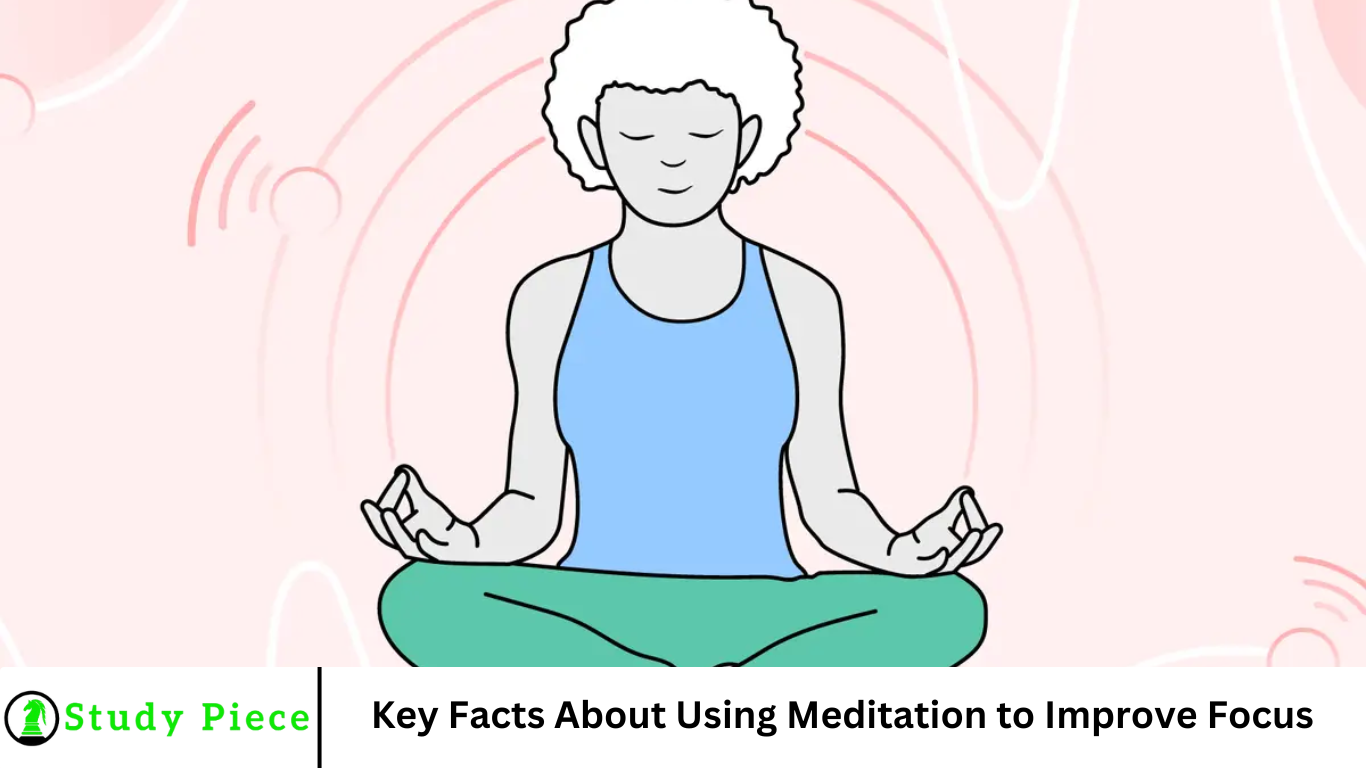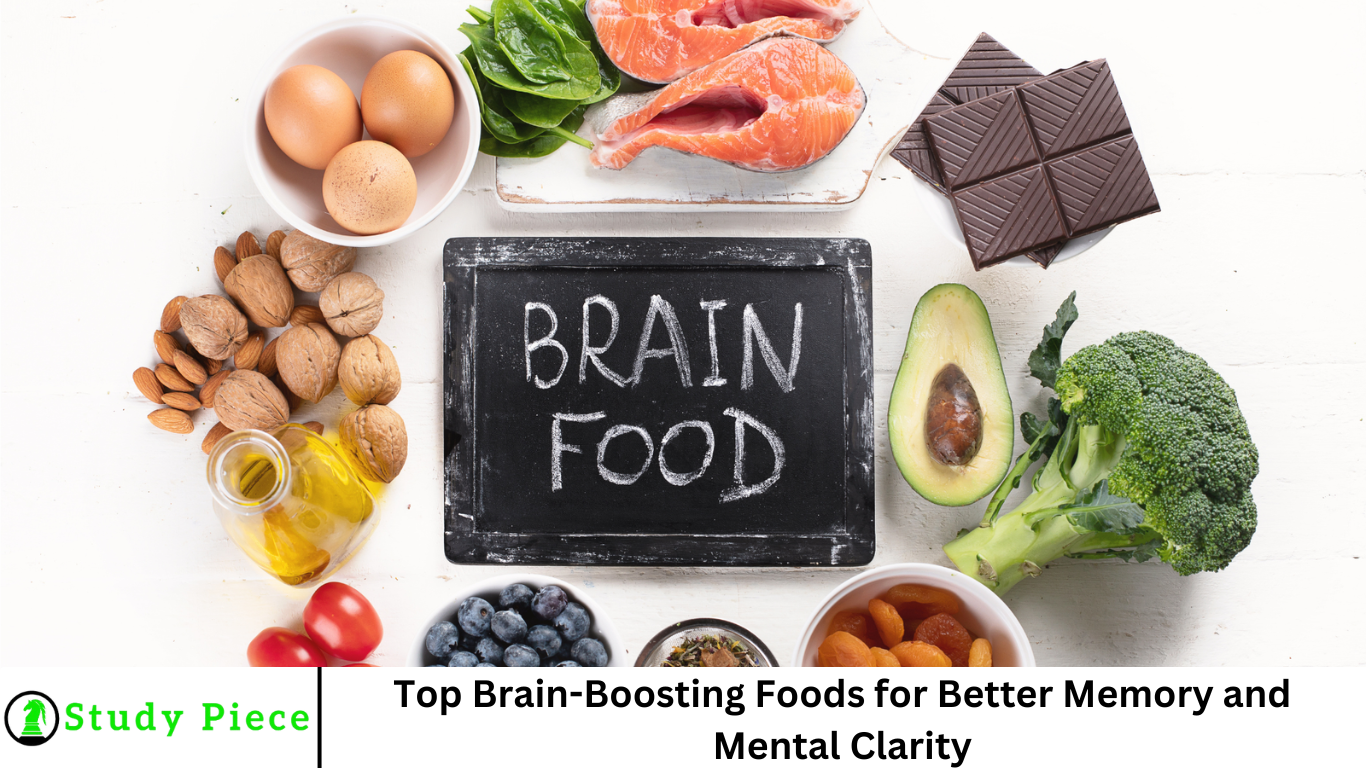Fast-paced world, maintaining focus can be a challenge. Distractions from technology, work pressures, and daily stressors make it difficult to concentrate. Fortunately, meditation has emerged as a powerful tool to enhance focus and mental clarity.
This article explores the key facts about using meditation to improve focus, its benefits, scientific backing, and practical techniques to incorporate it into your daily routine.
More Read: The Impact of Sleep on Learning: How Rest Enhances Memory and Retention
How Meditation Enhances Focus
Meditation works by training the brain to sustain attention and reduce mind-wandering. Here’s how it helps:
- Strengthens the Prefrontal Cortex: This brain region is responsible for attention and decision-making. Regular meditation thickens the prefrontal cortex, improving focus.
- Reduces Default Mode Network (DMN) Activity: The DMN is active when the mind wanders. Meditation decreases DMN activity, helping you stay present.
- Improves Working Memory: Studies show that meditation enhances working memory, which is crucial for maintaining focus on tasks.
- Lowers Stress and Anxiety: Stress is a major distraction. Meditation reduces cortisol levels, promoting mental clarity.
Scientific Evidence Supporting Meditation for Focus
Numerous studies validate meditation’s impact on focus:
- A Harvard University study found that 8 weeks of mindfulness meditation increased gray matter density in brain regions linked to learning and memory.
- Research published in Psychological Science showed that brief mindfulness training improved focus and cognitive performance.
- A University of California study revealed that meditators had better sustained attention than non-meditators.
These findings highlight meditation’s effectiveness in boosting concentration.
Types of Meditation That Improve Concentration
Different meditation techniques can enhance focus. Here are the most effective ones:
Mindfulness Meditation
- Involves paying attention to the present moment without judgment.
- Strengthens awareness and reduces distractions.
Transcendental Meditation
- Uses a mantra to achieve deep relaxation and mental clarity.
- Helps in reducing stress-related distractions.
Focused Attention Meditation
- Centers on a single object, breath, or sound.
- Trains the mind to resist distractions.
Loving-Kindness Meditation
- Focuses on cultivating compassion.
- Indirectly improves focus by reducing negative emotions.
Benefits of Meditation Beyond Focus
While improving focus is a major benefit, meditation also offers:
- Reduced Stress & Anxiety: Lowers cortisol and promotes relaxation.
- Better Emotional Regulation: Enhances self-control and patience.
- Improved Sleep: A calm mind leads to deeper, more restful sleep.
- Enhanced Creativity: A focused mind is more innovative.
How to Start Meditating for Better Focus
Follow these steps to begin your meditation practice:
- Choose a Quiet Space: Minimize distractions.
- Set a Time Limit: Start with 5-10 minutes daily.
- Focus on Your Breath: Pay attention to inhales and exhales.
- Notice Wandering Thoughts: Gently bring your focus back.
- Use Guided Meditations: Apps like Headspace or Calm can help.
Common Challenges and How to Overcome Them
- Difficulty Concentrating: Start with shorter sessions and gradually increase duration.
- Restlessness: Try walking meditation if sitting still is hard.
- Inconsistent Practice: Set reminders or meditate at the same time daily.
Tips for Maintaining a Consistent Meditation Practice
- Track Progress: Use a journal to note improvements in focus.
- Join a Group: Community support can boost motivation.
- Be Patient: Results take time—consistency is key.
Frequently Asked Question
How Does Meditation Help Improve Focus?
Meditation trains the brain to sustain attention by:
- Strengthening the prefrontal cortex (responsible for focus).
- Reducing activity in the Default Mode Network (DMN), which is linked to mind-wandering.
- Improving working memory and cognitive control.
- Studies show that even short daily meditation sessions can enhance concentration over time.
What Type of Meditation Is Best for Focus?
The most effective meditation styles for focus include:
- Focused Attention Meditation (concentrating on breath, a mantra, or an object).
- Mindfulness Meditation (observing thoughts without judgment).
- Transcendental Meditation (using a mantra for deep relaxation).
- Beginners often find focused attention meditation the easiest to start with.
How Long Should I Meditate to See Results?
Beginners: Start with 5-10 minutes daily:
- Intermediate/Advanced: 15-30 minutes per session.
- Scientific studies suggest noticeable improvements in focus after 8 weeks of consistent practice.
- Consistency matters more than duration—regular short sessions are better than occasional long ones.
Can Meditation Help with ADHD or Attention Problems?
Yes! Research indicates that meditation can:
- Reduce impulsivity and distractibility.
- Improve executive function (planning, focus, self-control).
- Be a helpful complementary practice alongside ADHD treatments.
- Mindfulness-based therapies (like Mindfulness-Based Cognitive Therapy, MBCT) are particularly effective.
Why Does My Mind Keep Wandering During Meditation?
Mind-wandering is normal—even experienced meditators deal with it. Tips to refocus:
- Gently bring attention back to your breath or mantra.
- Avoid self-judgment—distractions are part of the process.
- Use guided meditations (apps like Headspace or Calm can help).
- The practice of returning to focus is what strengthens concentration over time.
Can Meditation Replace Other Focus-Boosting Methods (Like Exercise or Nootropics)?
Meditation is a complementary tool, not necessarily a replacement. For best results:
- Combine meditation with exercise (which also boosts brain function).
- Maintain a healthy diet (omega-3s, antioxidants support cognition).
- Use nootropics or caffeine mindfully if needed.
- Meditation enhances natural focus, while other methods provide additional support.
How Soon Will I Notice Improved Focus from Meditation?
Short-term: Some people feel calmer and slightly more focused after just one session:
- Long-term: Significant improvements typically appear after 4-8 weeks of daily practice.
- Maximum benefits: Many report peak cognitive benefits after 6 months or more of consistent meditation.
- Patience and consistency are key—think of it as mental fitness training.
Conclusion
Meditation is a scientifically backed method to improve focus, reduce distractions, and enhance cognitive function. By incorporating mindfulness, focused attention, or other meditation techniques into your routine, you can train your brain to stay sharp and attentive. Start with small steps, stay consistent, and experience the transformative power of meditation on your concentration and overall mental well-being.



